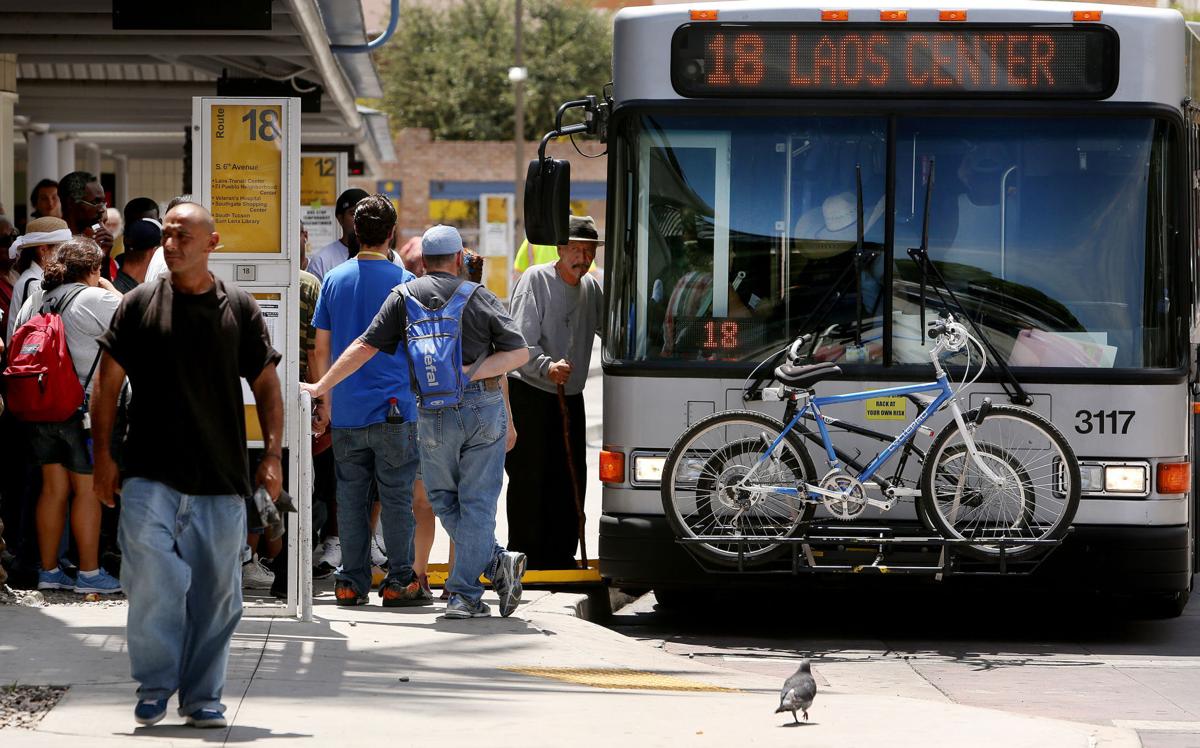Last December, this column looked at metropolitan public transit authorities, which some have pointed to as a possible alternative for running the local transit system.
As readers have likely not forgotten, the Sun Tran bus system was crippled by a 42-day strike in the summer of 2015, an event that led city officials to form the Transit Stakeholder Advisory Group with the explicit purpose of exploring policies and arrangements that would make future strikes less likely. After a series of meetings in 2016, the group formally recommended the formation of an MPTA, along with other changes discussed below, last January.
The key advantages of an MPTA cited by the group included its ability to choose between contracting out to a private management firm or hiring its own workers directly, its singular focus on transit, having a directly elected board and, perhaps most importantly, the ability to levy a property tax and provide a dedicated funding source for transit services.
Others, including Councilman Steve Kozachik, have expressed concern about the formation of an additional taxing authority that could compete with the city for scarce tax dollars.
The transit system is largely funded by city general funds , with $30 million budgeted for bus service this year. That contribution has been rising quickly in recent years, which is a big part of why the council approved a fare hike last September, the first since 2011.
Some cold water was thrown on the MPTA idea by City Attorney Mike Rankin, who provided a legal opinion to the City Council that concluded state statutes that govern MPTAs “in their current form, do not provide a viable mechanism for securing funding and/or providing alternative management for the city’s public transit operations.”
Though he’s skeptical of MPTAs, Kozachik said, “It would have been nice to have known this a year ago.”
“We have effectively wasted people’s time,” he said of the work done by the stakeholder group.
Brian Flagg, a member representing the Tucson Bus Rider’s Union who agreed with Kozachik that the process now appears to have been “a waste of time,” said that the stakeholders requested legal opinions from the city about whether an MPTA would be viable, but only heard back after several requests .
Materials from the group’s September meeting do note that one of the potential issues with MPTAs is that state legislation governing them “requires updating,” and there is a breakdown of the consequences of a 1970s Arizona Supreme Court decision that limited MPTA powers .
Rankin was not immediately available for comment on the matter. City Manager Mike Ortega said he had told the group he “wasn’t sure” that an MPTA “would work based on my understanding of statutes.”
In a unanimously approved motion at the end of a March 21 study session, Councilwoman Regina Romero directed Rankin to look into “any necessary legislation to enable an MPTA in Tucson.”
“If an MPTA is not feasible, I would like the attorney to explain what other management models we could use to achieve similar results,” she added.
Deputy City Attorney David Deibel said the state MPTA statute “would need to be amended so that it would become a workable structure to use here in Tucson. That certainly wasn’t going to happen during this legislative session.”
With a metro authority likely not in the cards for the time being, Romero and others are hopeful that other changes can go a long way toward improving transit service, increasing ridership and minimizing the possibility of another strike.
During the same meeting, the council directed its staff to implement a number of performance incentives for the private company that operates the Tucson transit system, which were also recommendations of the stakeholder group. Those would encourage, and discourage with disincentives, safer, more timely and higher-quality service to more riders.
With the current Teamsters contract with Transdev, the company that operates the Sun Tran bus service, ending this summer, the council also directed staff to “engage stakeholders in discussions around … upcoming labor negotiations, as subject to legal limitations.”
“Whatever we can legally do, we need to make sure we are as deeply involved as possible, without violating the law, to make sure that Transdev and the union are having productive conversations,” Kozachik said.
Ortega said federal law “limits our ability to be involved or engaged at all. What I can do is encourage, I can certainly make suggestions.”
Apart from those measures, Kozachik said the city has undertaken additional steps to improve bus service, including revamping a number of stops and adding additional routes to its frequent-transit network, which provides buses at 15-minute intervals.
“We’ve got a good transit system right now. We just need to improve on what we’ve got,” he said.
But Kevin Thomas, business agent for Teamsters Local 104, thinks that sticking with the current model — one without a dedicated transit-funding source — “doesn’t give us a lot of wiggle room when the city is still having financial hardship.”
“It’s not so much for union demands. It’s not that at all,” he said. “What it is for, it would enable the city to have the resources to manage the ever-growing and expanding transit department.”
When asked about the prospects of another strike this year, Thomas said he’s “an optimist.”
“I want to stay away from what took place in 2015,” he added later. “It is our very, very last option. ”
Asked the same question, Romero said, “I wish I would be able to answer that question.”





